Dopamine
How to submit an article:
- Registered users can submit any published journal article that has a unique DOI (Digital Object Identifier) name or link to Research Hub.
- For example, you can paste the full DOI link:
https://doi.org/10.1109/5.771073or just the DOI name:10.1109/5.771073into the field above and click submit. - The person who is first to submit a valid article to Research Hub will forever be credited for it, and every article submission earns you +6 Research Points.
Related Topics
Published research studies are articles that present the findings of original research that has undergone a peer-review process and has been made publicly available in scholarly journals, books or other media.
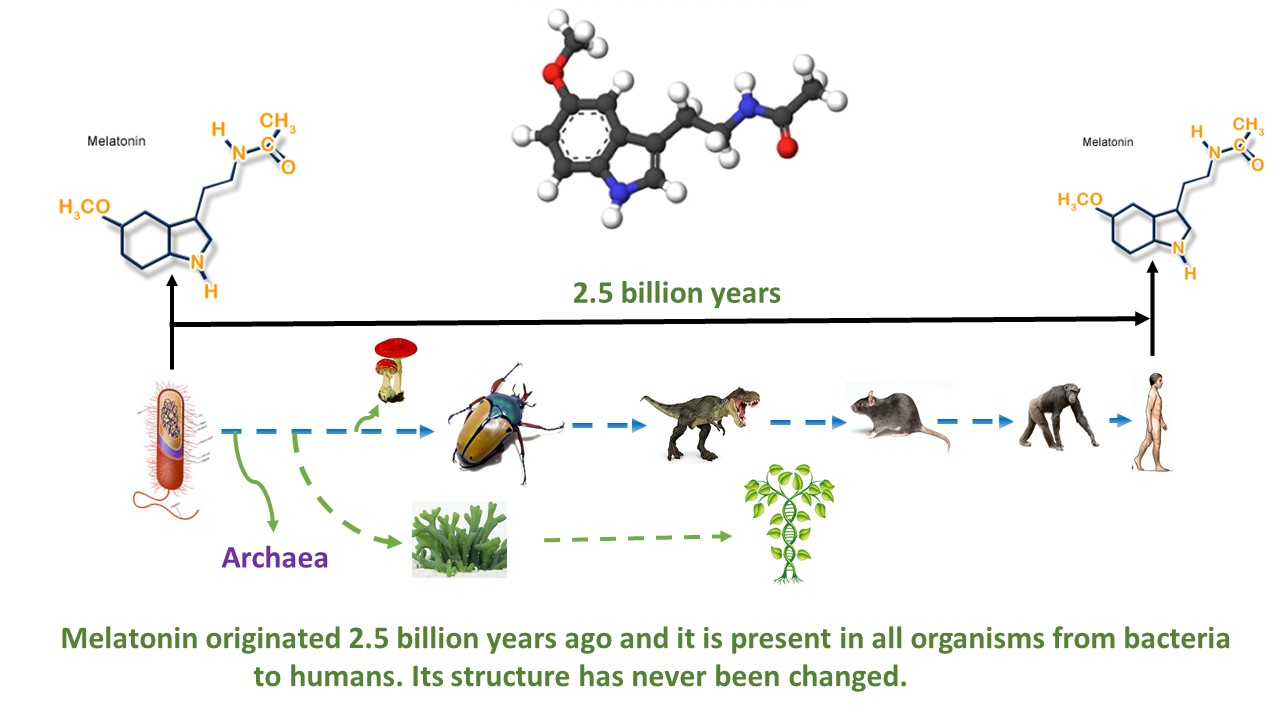
Serotonin, melatonin and their precursors and metabolites and vitamin D3 derivatives in honey
2022 Sep 30 Melatonin Research Kim TK, Fabisiak A, Brzeminski P, Reiter RJ, Slominski AT
Review Article Serotonin Honey Vitamin D MelatoninRecent revelations of L-DOPA, dopamine, 5-hydroxytryptophan, tryptamine, serotonin, N-acetylserotonin, melatonin, 2-hydroxymelatonin, AFMK, AMK, and vitamin D3 derivatives in honey expand its health benefits.
A comprehensive review on potential pharmacological activities of Morinda citrifolia Linn. for the treatment of central nervous system disorders
2022 Jan 01 Journal of Pharmaceutical Negative Results Asiya Begum, Vijayapandi Pandy, Jithendra Chimakurthy, Rama Rao Nadendla
Review Article Neuroprotective NoniMorinda citrifolia (Noni) exhibits potential therapeutic activities for treating central nervous system disorders by targeting mainly receptors, enzyme transporters, and has neuroprotective activity.
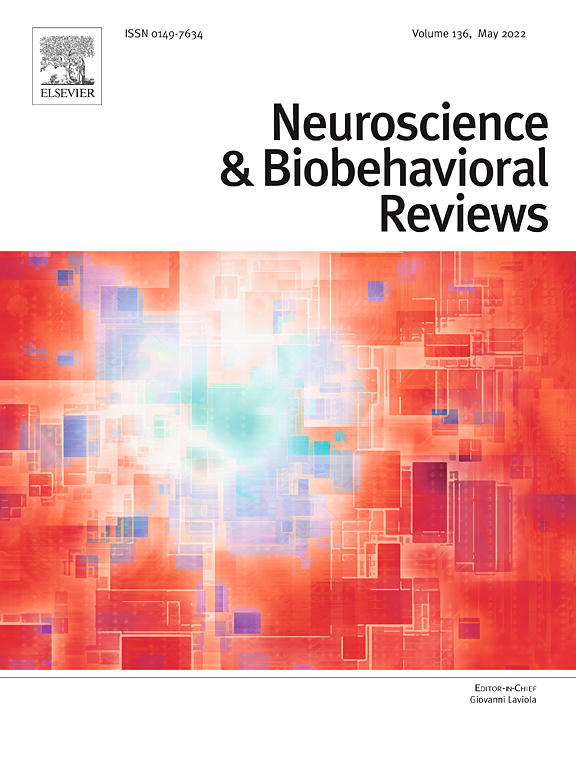
Bidirectional role of acupuncture in the treatment of drug addiction
2021 Jul Neuroscience & Biobehavioral Reviews Lee MY, Lee BH, Kim HY, Yang CH
This proposes that acupuncture may reduce drug craving by correcting both dysfunctions of the mesolimbic dopamine pathway.
Review Article Mental Health Drug Addiction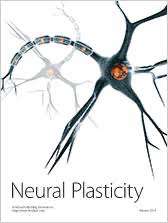
Acupuncture for Parkinson’s Disease: Efficacy Evaluation and Mechanisms in the Dopaminergic Neural Circuit
2021 Jun 15 Neural Plasticity Zhao Y, Zhang Z, Qin S, Fan W, Li W, Liu J, et al.
Review Article Parkinson's Disease Neurological Disorders DopamineAcupuncture may slow Parkinson's disease progression by protecting dopaminergic neurons and regulating neurotransmitter balance, potentially reducing dependence on medication.
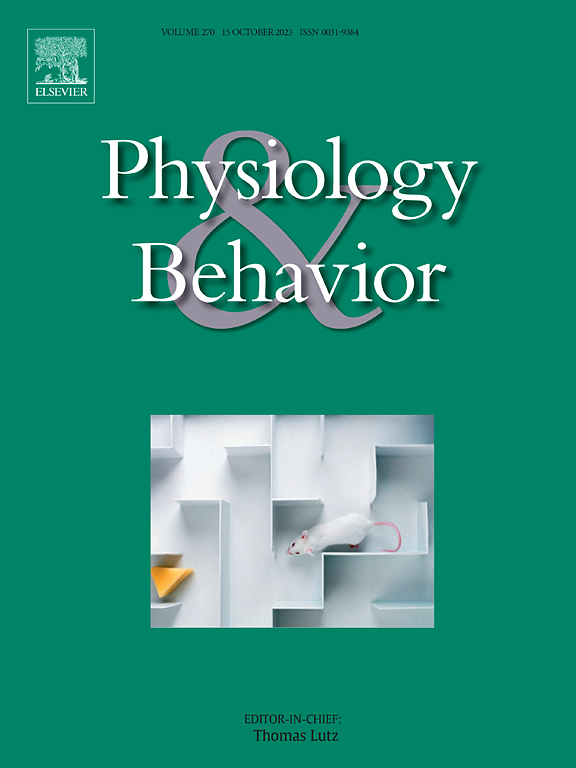
Impact of saffron (Crocus Sativus Linn) supplementation and resistance training on markers implicated in depression and happiness levels in untrained young males
2021 May Physiology & Behavior Moghadam BH, Bagheri R, Roozbeh B, Ashtary-Larky D, Gaeini AA, Dutheil F, et al.
Randomised Controlled Trial Saffron Depression DopamineCombining resistance training with saffron supplementation enhances happiness levels and increases dopamine and serotonin concentrations more than resistance training alone.
Research insights are moderated by the Research Hub team and offer an at-a-glance overview of interesting research findings.

2022 Melatonin Research
Recent revelations of L-DOPA, dopamine, 5-hydroxytryptophan, tryptamine, serotonin, N-acetylserotonin, melatonin, 2-hydroxymelatonin, AFMK, AMK, and vitamin D3 derivatives in honey expand its health benefits.
Review Article Honey Melatonin Serotonin Vitamin D
Serotonin, melatonin and their precursors and metabolites and vitamin D3 derivatives in honey
Kim TK, Fabisiak A, Brzeminski P, Reiter RJ, Slominski AT
2022 Journal of Pharmaceutical Negative Results
Morinda citrifolia (Noni) exhibits potential therapeutic activities for treating central nervous system disorders by targeting mainly receptors, enzyme transporters, and has neuroprotective activity.
Review Article Neuroprotective Noni
A comprehensive review on potential pharmacological activities of Morinda citrifolia Linn. for the treatment of central nervous system disorders
Asiya Begum, Vijayapandi Pandy, Jithendra Chimakurthy, Rama Rao Nadendla

2021 Neural Plasticity
Acupuncture may slow Parkinson's disease progression by protecting dopaminergic neurons and regulating neurotransmitter balance, potentially reducing dependence on medication.
Review Article Neurological Disorders Parkinson's Disease
Acupuncture for Parkinson’s Disease: Efficacy Evaluation and Mechanisms in the Dopaminergic Neural Circuit
Zhao Y, Zhang Z, Qin S, Fan W, Li W, Liu J, et al.

2021 Physiology & Behavior
Combining resistance training with saffron supplementation enhances happiness levels and increases dopamine and serotonin concentrations more than resistance training alone.
Randomised Controlled Trial Depression Saffron
Impact of saffron (Crocus Sativus Linn) supplementation and resistance training on markers implicated in depression and happiness levels in untrained young males
Moghadam BH, Bagheri R, Roozbeh B, Ashtary-Larky D, Gaeini AA, Dutheil F, et al.

2020 Evidence-Based Complementary and Alternative Medicine
Acupuncture at Zusanli (ST36) might be effective in reducing injuries induced by sepsis in various organs by reducing oxidative stress and inflammation.
Systematic Review Sepsis ST36
Acupuncture at Zusanli (ST36) for Experimental Sepsis: A Systematic Review
Lai F, Ren Y, Lai C, Chen R, Yin X, Tan C, et al.
Review Articles
Review articles summarise and critically evaluate the current state of research on a specific topic or field by synthesising multiple primary research studies.

Serotonin, melatonin and their precursors and metabolites and vitamin D3 derivatives in honey
2022 Sep 30 Melatonin Research Kim TK, Fabisiak A, Brzeminski P, Reiter RJ, Slominski AT
Review Article Serotonin Honey Vitamin D MelatoninRecent revelations of L-DOPA, dopamine, 5-hydroxytryptophan, tryptamine, serotonin, N-acetylserotonin, melatonin, 2-hydroxymelatonin, AFMK, AMK, and vitamin D3 derivatives in honey expand its health benefits.
A comprehensive review on potential pharmacological activities of Morinda citrifolia Linn. for the treatment of central nervous system disorders
2022 Jan 01 Journal of Pharmaceutical Negative Results Asiya Begum, Vijayapandi Pandy, Jithendra Chimakurthy, Rama Rao Nadendla
Review Article Neuroprotective NoniMorinda citrifolia (Noni) exhibits potential therapeutic activities for treating central nervous system disorders by targeting mainly receptors, enzyme transporters, and has neuroprotective activity.

Bidirectional role of acupuncture in the treatment of drug addiction
2021 Jul Neuroscience & Biobehavioral Reviews Lee MY, Lee BH, Kim HY, Yang CH
This proposes that acupuncture may reduce drug craving by correcting both dysfunctions of the mesolimbic dopamine pathway.
Review Article Mental Health Drug Addiction
Acupuncture for Parkinson’s Disease: Efficacy Evaluation and Mechanisms in the Dopaminergic Neural Circuit
2021 Jun 15 Neural Plasticity Zhao Y, Zhang Z, Qin S, Fan W, Li W, Liu J, et al.
Review Article Parkinson's Disease Neurological Disorders DopamineAcupuncture may slow Parkinson's disease progression by protecting dopaminergic neurons and regulating neurotransmitter balance, potentially reducing dependence on medication.

Acupuncture at Zusanli (ST36) for Experimental Sepsis: A Systematic Review
2020 Mar 07 Evidence-Based Complementary and Alternative Medicine Lai F, Ren Y, Lai C, Chen R, Yin X, Tan C, et al.
Systematic Review Sepsis ST36Acupuncture at Zusanli (ST36) might be effective in reducing injuries induced by sepsis in various organs by reducing oxidative stress and inflammation.
Clinical Trials
Clinical trials are research studies that involve people and are conducted to evaluate the safety and efficacy of new treatments or interventions, such as drugs, medical devices, or behavioural therapies.
Study Protocols
Published study protocols are detailed plans that outline the objectives, methodology, statistical analyses, and organisation of a research study that have been made publicly available for others to review and use as a reference.
Presentation Slides

Review Article
Recent revelations of L-DOPA, dopamine, 5-hydroxytryptophan, tryptamine, serotonin, N-acetylserotonin, melatonin, 2-hydroxymelatonin, AFMK, AMK, and vitamin D3 derivatives in honey expand its health benefits.
Kim TK, Fabisiak A, Brzeminski P, Reiter RJ, Slominski AT

Review Article
Morinda citrifolia (Noni) exhibits potential therapeutic activities for treating central nervous system disorders by targeting mainly receptors, enzyme transporters, and has neuroprotective activity.
Asiya Begum, Vijayapandi Pandy, Jithendra Chimakurthy, Rama Rao Nadendla

Review Article
Acupuncture may slow Parkinson's disease progression by protecting dopaminergic neurons and regulating neurotransmitter balance, potentially reducing dependence on medication.
Zhao Y, Zhang Z, Qin S, Fan W, Li W, Liu J, Wang S, Xu Z, Zhao M

Randomised Controlled Trial
Combining resistance training with saffron supplementation enhances happiness levels and increases dopamine and serotonin concentrations more than resistance training alone.
Moghadam BH, Bagheri R, Roozbeh B, Ashtary-Larky D, Gaeini AA, Dutheil F, Wong A

Systematic Review
Acupuncture at Zusanli (ST36) might be effective in reducing injuries induced by sepsis in various organs by reducing oxidative stress and inflammation.
Lai F, Ren Y, Lai C, Chen R, Yin X, Tan C, Li J, Yang C, Liang G, Li J, Zeng R
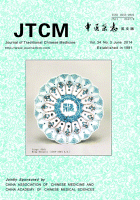
Review Article
Acupuncture, as an adjuvant therapy or monotherapy, can protect and restore dopaminergic neurons, bearing positive implications for the Parkinson's disease treatment.
Danqing X
Executive Summary
Write an executive summary in the form of a blog article on the topic of "Research into Chinese medicine treatment for Dopamine" summarising the research below and using language that can be easily understood by patients and avoiding medical jargon using a professional and caring tone of voice.
Write an executive summary in the form of a blog article on the topic of "Researched Chinese medicine treatments for Dopamine" summarising the research below in an objective and easy to understand way, and using language that can be easily understood by patients. Group the article into Chinese medicine treatments first, followed by nutrition and other treatments. Avoid using medical jargon and use a professional and caring tone of voice.
Write me a concise but easy to understand executive summary on the topic of "Chinese medicine treatments for Dopamine" based on the following research that I will give you. Your summary should be 2 paragraphs long in Australian English spelling and include references to the studies.
A Review Article published in 2022 in the journal Melatonin Research found that Recent revelations of L-DOPA, dopamine, 5-hydroxytryptophan, tryptamine, serotonin, N-acetylserotonin, melatonin, 2-hydroxymelatonin, AFMK, AMK, and vitamin D3 derivatives in honey expand its health benefits. The identification of L-DOPA, dopamine, 5-hydroxytryptophan, tryptamine, serotonin, N-acetylserotonin, melatonin, 2-hydroxymelatonin, AFMK, AMK, and vitamin D3 derivatives in honey aligns with their presence in insects and plants. Serotonin and melatonin, integral to tryptophan metabolism, serve diverse roles as hormones, neurotransmitters, and antioxidants. Dopamine and tryptamine, essential neurotransmitters, have broad significance across species. The detection of these molecules in honey, a widely consumed health-promoting substance, enhances its beneficial effects on human health. The findings highlight the multifaceted composition of honey, encompassing compounds with recognized roles in neurotransmission, antioxidant activity, and hormonal regulation. The presence of these molecules not only broadens honey's spectrum of health benefits for humans but also implies their significance in the intricate physiology of social insects, influencing bee development and colony functions. The co-detection of these compounds with vitamin D3 derivatives further underscores the interconnectedness of honey with insect and plant biology, shedding light on potential synergies that contribute to the diverse positive effects of honey on human health.
A Review Article published in 2022 in the journal Journal of Pharmaceutical Negative Results found that Morinda citrifolia (Noni) exhibits potential therapeutic activities for treating central nervous system disorders by targeting mainly receptors, enzyme transporters, and has neuroprotective activity. The research involved gathering existing scholarly literature across databases such as ResearchGate, Medline, and Wikipedia. It focused on the impact of the Noni plant on receptors, enzyme transporters, and the various methods for evaluating CNS disorders. The antidepressant effects of the Morinda citrifolia fruit were assessed in vitro using Monoamine Oxidase (MAO) A and B bioassays. The antipsychotic activity was determined by measuring the degree of inhibition of dopaminergic receptors by the Methanolic extract of Noni. In the discussion of the results, the findings suggested that Morinda citrifolia fruit has potential therapeutic benefits. The Noni fruit appears to work synergistically due to its constituent active compounds that inhibit MAOA and MAOB enzymes, displaying antidepressant activity. Moreover, it showed an antipsychotic activity attributed to the Methanolic extract of Noni inhibiting dopaminergic receptors. Other notable activities include anti-craving for alcohol dependence, judged by CPP test, anxiolytic activity exhibited by the administration of benzodiazepine and MMC in mouse models, and also neuroprotective ability by reducing brain impairment caused by reperfusion injury.
A Review Article published in 2021 in the journal Neural Plasticity found that Acupuncture may slow Parkinson's disease progression by protecting dopaminergic neurons and regulating neurotransmitter balance, potentially reducing dependence on medication. The study summarizes various clinical trials that explore the impact of acupuncture on Parkinson's disease. It predominantly focuses on how acupuncture, when combined with anti-Parkinson's medication, helps in improving the symptoms of the disease. Furthermore, it delves into the protective role of acupuncture on dopaminergic neurons in the brain through various physiological pathways including antioxidative stress, anti-inflammatory, and anti-apoptotic mechanisms. The abstract also discusses how acupuncture could potentially modulate the neurotransmitter balance in the patient's basal ganglia circuit. The results inferred from the review of the current studies show possible benefits of acupuncture in managing Parkinson's disease. During the early stages of the disease in particular, acupuncture demonstrated potential in reducing the neurodegeneration of the dopamine-producing neurons in the brain. This could eventually regulate the balance of the dopaminergic circuit in the brains of these patients. This regulation and neuroprotective role suggest that acupuncture could potentially delay the progression of Parkinson's disease. These potential benefits could reduce the patient's dependence on medication for managing their symptoms.
A Randomised Controlled Trial published in 2021 in the journal Physiology & Behavior found that Combining resistance training with saffron supplementation enhances happiness levels and increases dopamine and serotonin concentrations more than resistance training alone. In this research, untrained young males were divided into two groups, one receiving resistance training coupled with saffron supplementation (150 mg pill of pure saffron post-workout and at a similar time on rest days), while the other received resistance training with a placebo (dextrose pill). For a period of six weeks, whole-body supervised resistance training was performed four times per week with three sets using 60-70% of their single repetition maximum. Various markers implicated in depression and happiness levels were assessed before and after this period. In terms of results, substantial increases in various markers including Anandamide, Arachidonoylglycerol, dopamine, and beta-endorphin were noticed within the group combining resistance training with saffron supplementation, yet no such changes were evident within the group who took the placebo. Compared to the placebo, the saffron group also experienced more significant improvements in happiness levels. Moreover, serotonin levels increased in both groups but were greater in the saffron-supplemented group, while tryptophan concentrations remained unchanged. Notably, both groups noted significant boosts in muscular endurance; these changes were greater with saffron supplementation.
A Systematic Review published in 2020 in the journal Evidence-Based Complementary and Alternative Medicine found that Acupuncture at Zusanli (ST36) might be effective in reducing injuries induced by sepsis in various organs by reducing oxidative stress and inflammation. The researchers conducted a systematic review of seven databases, covering the inception of each to May 2019. They identified 54 studies that used acupuncture at ST36, a specific acupuncture point, for treating experimental sepsis, drawing from both English and Chinese literature resources. The studies reviewed suggest that acupuncture could serve as a complementary strategy in treating sepsis by reducing damage in multiple body systems: cardiac, lung, kidney, liver, gastrointestinal tract, and the immune system. It's thought to achieve these results through several mechanisms: limiting oxidative stress, managing inflammation, improving microcirculation, and upholding immune balance with the help of dopamine. Worth noting, however, is that these positive findings must be carefully considered due to the methodological quality and potential publication bias of the included studies.
A Review Article published in 2015 in the journal Journal of Traditional Chinese Medicine found that Acupuncture, as an adjuvant therapy or monotherapy, can protect and restore dopaminergic neurons, bearing positive implications for the Parkinson's disease treatment. Methodologically, animal studies were used to investigate the effects of acupuncture treatment on Parkinson's disease. An examination was conducted to see if the treatment was neuroprotective, if it could protect dopaminergic neurons from degeneration, and restorative, if it could restore tyrosine hydroxylase positive dopaminergic terminals in the striatum. These pathways were monitored at both molecular and cellular levels. The research also looked into whether the protection was mediated through the same mechanisms as other neuroprotective agents such as anti-oxidative stress, anti-inflammatory, and anti-apoptotic pathways. The results indicated that acupuncture was not only neuroprotective and restorative, but also seen to improve motor performance in animal models of Parkinsonism. The protective effect appeared to be mediated through common mechanisms of other neuroprotective agents, while restoration of function involved activation of certain compensatory brain regions to correct the imbalances stemming from the loss of dopaminergic neurons. Furthermore, clinical studies in China and Korea depicted a positive impact of acupuncture in treating Parkinson's disease, specifically by reducing the dosage of dopaminergic medications and the associated side effects.
Moderation Tools
Topic
Sign In
Users not signed in are limited to viewing the 5 most recent items of content.